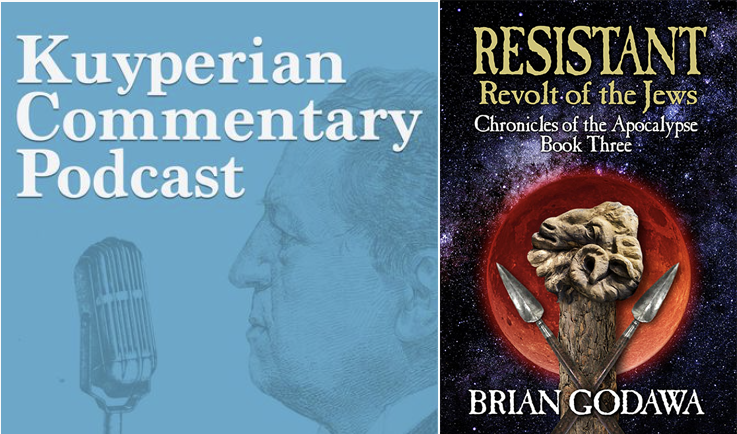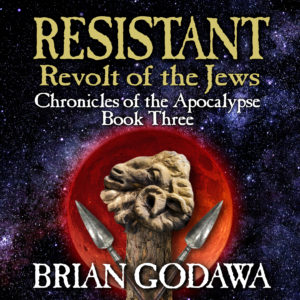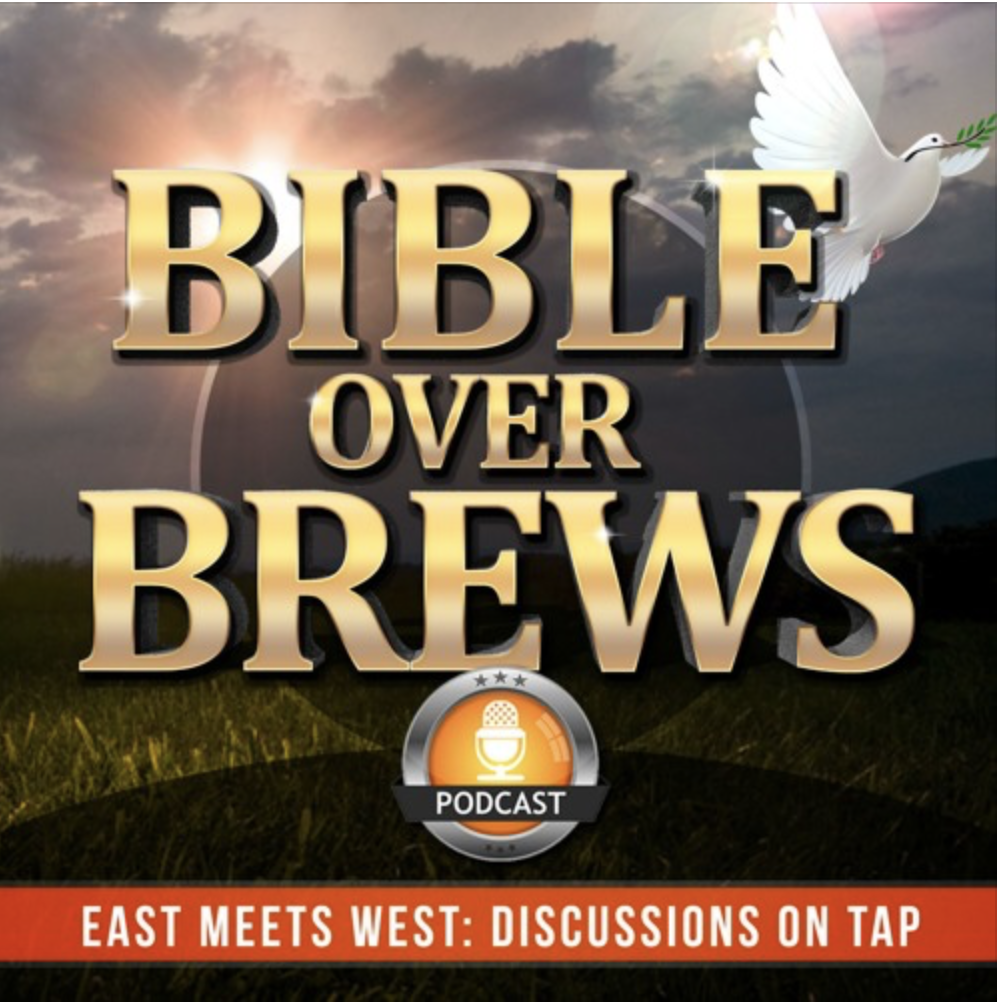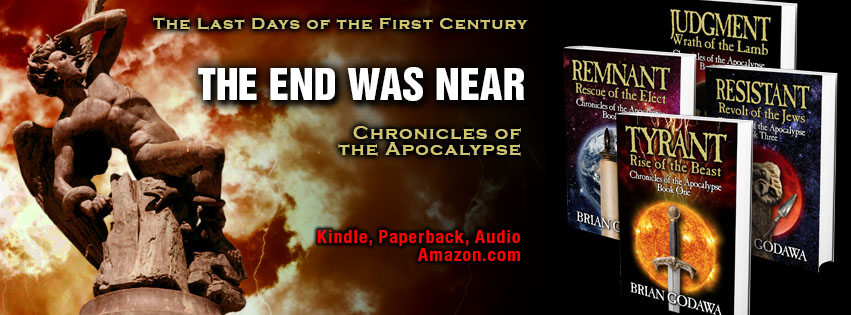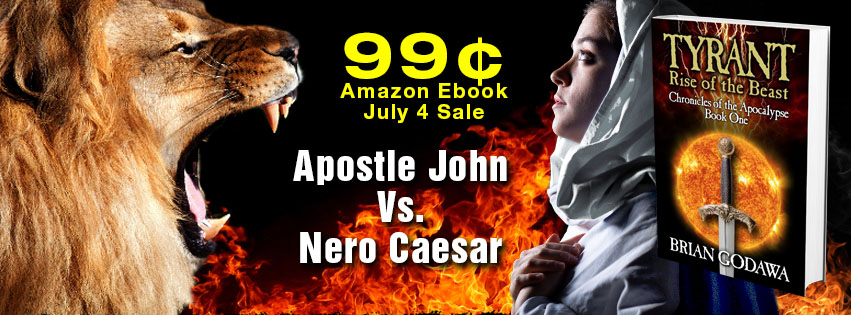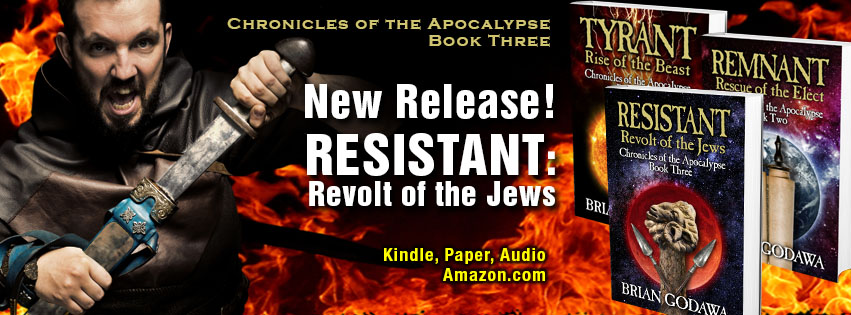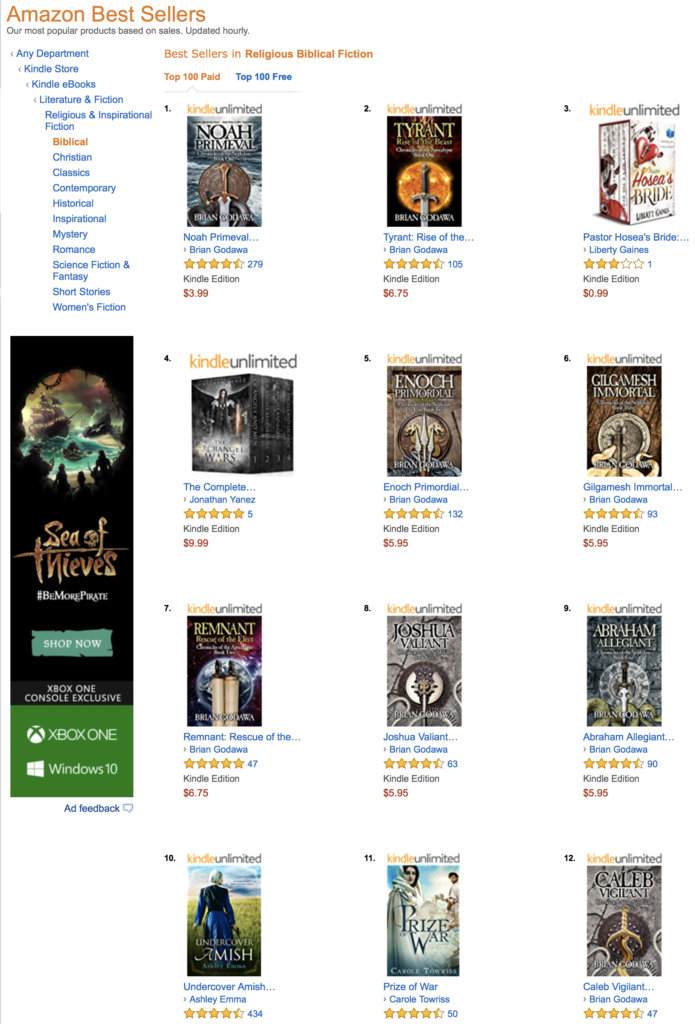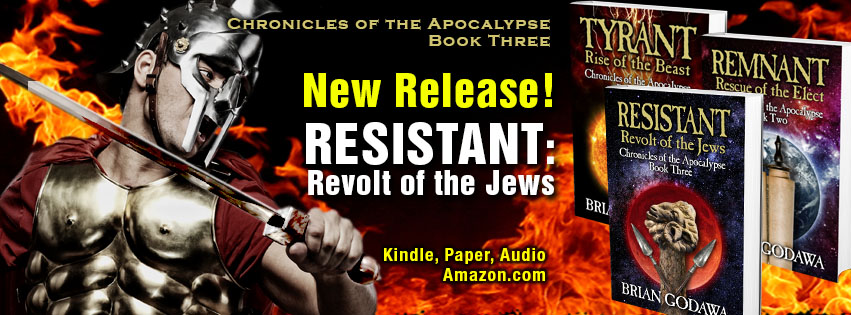
My Third Book in the Apocalypse Series is Now Available on Amazon!
Book 3 in the series. A.D. 67. Nero’s Roman armies plunder the land of Israel. Christian doctor Alexander and his wife Cassandra return to Jerusalem to help the sick, wounded and orphans of war. The Two Witnesses begin their proclamation of God’s judgment as the Roman abomination of desolation approaches the holy city.
The Trumpets are sounding, the Seals are breaking, the Bowls are poured out.
Historically accurate, theologically provocative, action and romance, spiritual warfare.
Here are some Advance Readers’ responses about the series after reading Resistant:
“From the beginning, to the end, The Chronicles of the Apocalypse brings the hard-to-read parts of Revelation to life in a way not seen before.”
Jeremy Eng
“Brian Godawa’s Chronicles of the Apocalypse series is a binge worthy, fast-paced exhilarating thriller of what happened historically and in the unseen realm of AD 67 Jerusalem. Fantastic work!”
Kwame Antwi-Boasiako
“Brian Godawa’s Chronicles of the Apocalypse, is a highly entertaining series that keeps you on the edge of your seat as you experience the spiritual warfare in the earthly and spiritual realms that may have caused the events leading up to and including fall of Jerusalem and the destruction of the temple in 70AD.
Mark Gerger
“Once again Brian has weaved his excellent storytelling and in-depth research into the best documented and most enjoyable historical biblical fiction I have ever read.”
Jeff Hopper
AT AMAZON HERE

